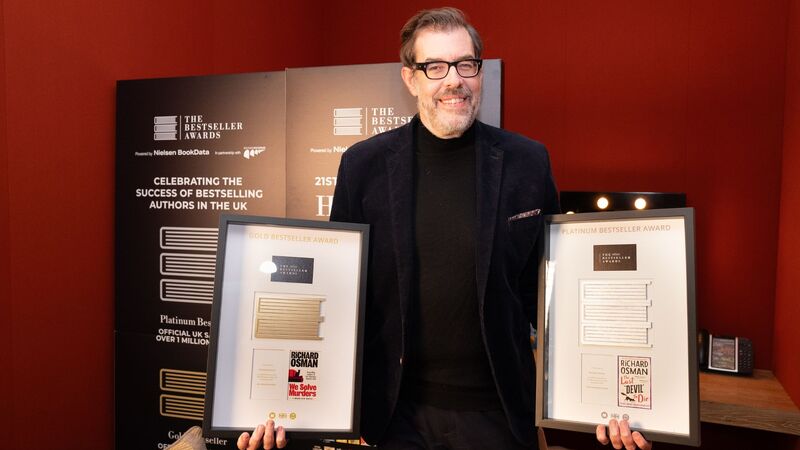You are viewing your 1 free article this month. Login to read more articles.
Past and future
If we’ve learned anything from recent publishing performance it should be that the past is no guarantor of future success.

If we’ve learned anything from recent publishing performance it should be that the past is no guarantor of future success. This time last year, with Prince Harry’s Spare breaking records, first-quarter sales in the UK were strong, and we looked askance at the US market where things had dipped. This year we report on a reversal, with a decline of close to 5% overall, with non-fiction in particular enduring some heavy weather.
The analysis reveals that £360.9m was sold through Nielsen BookScan’s Total Consumer Market (TCM), a decline of 4.8% on 2023 and 1% down against 2022. In volume terms, 40.5 million books were sold through the TCM, a drop of 7.1% and 6.8%, respectively, versus the previous two years. Not all of this is down to Spare—strip out Harry and the drop is a shallower 2.5%.
There are some pockets of excitement of course: fiction is up 5.4%, beating its previous first-quarter high of £102.6m in 2008, led as you’d expect by genres such as SFF and Crime & Thriller. Literary (as defined by the metadata anyway) remains tougher to sell though Gabrielle Zevin’s Tomorrow, and Tomorrow, and Tomorrow and long-timer David Nicholls’ One Day are examples of what can happen when we get it right.
It is non-fiction where the rift is, down 10%, and not just because of Harry. This week there are two non-fiction books in the overall Top 20, while the Non-Fiction chart itself is dominated by cookbooks
Context is everything. Children’s book sales remain stubbornly down, but after a decent run of record hauls, and also perhaps an indicator (as we noted in The Bookseller’s coverage from Bologna) that reading levels among teenagers are trending up, while for the younger folk (and their parents) there is a genuine struggle for engagement though the success of Jamie Smart and others is an important development.
It is non-fiction where the rift is, down 10%, and not just because of Harry. This week there are two non-fiction books in the overall Top 20, while the Non-Fiction chart itself is dominated by cookbooks. Publishers of serious non-fiction, like their fiction counterparts, will be scrutinising how spring releases across both sectors perform, particularly with new titles from Salman Rushdie and Nicholls on the runway.
One Day is a good example of why this matters. First published in 2009, it sells through word of mouth (including bookseller recommendation), because of the film and most recently Netflix adaptations, publisher stewarding, but also its author’s dedication to exploring similar themes in his later titles. I am sure there is nothing cynical about this, but this is a brand rarely off message, aligned perfectly with that quality of writing publishers can put into the world with what Jenny Lord, executive publisher at Weidenfeld & Nicolson, calls a sense of conviction. This has all become slightly unfashionable: the slow-cooker approach giving way to an air-fryer attitude that wants books to rise fast, propelled by the convection currents of advance sales and the heat of subscription boxes.
There is room for both, of course, but it is the balance that we need to get right. The past may not be a good guide to the future, but it can sure help fund it.
















